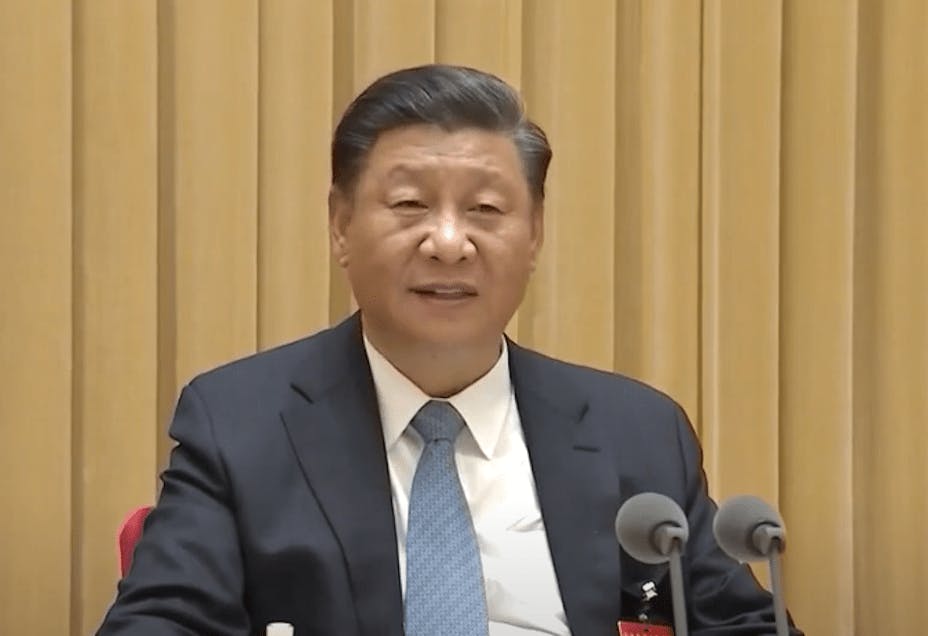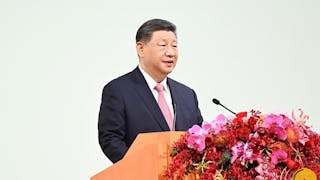12月16至18日的中央經濟工作會議所強調的經濟工作方向,其主要內容對港澳兩個特別行政區都將有重要的影響。
會議由國家主席習近平主持,中共中央政治局常委李克強、栗戰書、汪洋、王滬寧、趙樂際和韓正出席。
習近平在會上強調,必須貫徹中共十九大及二中、三中、四中和五中全會的精神和決定,對中國來說,2021年將是重要的一年。
首先,中央政府必須維持宏觀經濟政策,促進創新和技術發展,化解地方政府的「隱性債務」及其風險管理問題,保持貨幣供應量和貨幣供應速度、社會資本積累。最重要的是,中央政府必須恢復經濟並預防經濟風險,補充銀行資本金,完善債券市場法制,加大對科技創新、小微企業、綠色發展的金融支持,深化利率匯率市場化改革,保持人民幣匯率在合理均衡水平上的基本穩定。
中央經濟工作會議對香港和澳門的直接影響是顯而易見的。在新冠病毒迅猛的疫情中,港澳必須為經濟復蘇的基礎做準備,尤其是香港,最近爆發了第四波新冠疫情,必須首先控制病毒傳染。儘管澳門的防疫工作做得很好,但也必須從法制及人員方面為建立債券和證券市場做準備。港澳也必須致力發展綠色金融,因為中央政府已經多次提到2021年及之後的綠色金融發展。
其次,創新與科技是中央政府的重點工作方向,因此,香港和澳門的大學必須在發展藍圖和創新科技人才培養方面,與政府加強合作。中學課程必須改革,加強創新和科技教育;創新和科技領域的年輕人才必須經過更嚴格的培訓,以便在內地與港澳之間進行交流。
另外,中央致力解決內地的住房問題,防止濫用土地,並確保住宅單位用於居住而非投機。然而,在港澳的資本主義樓市,投機是很普遍的,這類投機活動可能有需要遏制,特區政府必須採取有效干預的措施,而不是輕描淡寫,否則不僅會導致「地產霸權」,而且會導致收入差距的鴻溝和貧富懸殊的矛盾。
總之,中央經濟工作會議指示的重要方向,大部分適用於港澳地區。現在是港澳特區政府思考中央經濟工作深遠影響的時候了,特別是在綠色金融、創新科技、供應鏈改革、內循環、糧食安全、住房供應和碳排放方面的控制和提高治理能力方面。
原刊於澳門新聞通訊社(MNA)網站,本社獲作者授權轉載。
China’s Economic Work Directions: Implications for Hong Kong and Macau
The major elements of economic work directions emphasized by the Central Economic Work Conference of the People’s Republic of China (PRC) from December 16 to 18 have important short-term and long-term implications for the Hong Kong Special Administrative Region (HKSAR) and the Macau Special Administrative Region (MSAR).
The conference was presided over by the PRC President, Xi Jinping, together with the attendance of the core members of the Politburo Standing Committee of the Chinese Communist Party, namely Premier Li Keqiang, Li Zhanshu, Wang Yang, Wang Huning, Zhao Leji and Han Zheng.
President Xi stressed in the conference that 2021 would be a significant year for China because of the necessity to implement the spirit and decisions of the Party’s 19thCongress and its second, third, fourth and fifth Plenums.
First and foremost, the central government will have to maintain its macro-economic policy, promote innovation and technological development, solve the problem of the “hidden debts” of local governments and their risks management, retain the quantity of money supply and the speed of social capital accumulation. Most importantly, the Chinese state at the central level will have to recover the economy and prevent economic risks, supplement the capital of banks, improve the legal framework of the bonds and securities markets, support small enterprises, develop green finance, deepen the reforms of the interest rate and exchange market, and to maintain the stability of the exchange rate of the Renminbi. Under these circumstances, the PRC’s “internal and international dual circulations” will be mutually promoted.
The immediate implications for the HKSAR and MSAR are obvious. Hong Kong and Macau must prepare for the foundation of economic recovery amid the rapid development of Covid-19, especially in Hong Kong where a fourth outbreak of Covid-19 has recently occurred and where the infectious disease must be controlled in the first place. While Macau has contained Covid-19 well, it must prepare for the foundation of the bonds and securities markets in terms of both the legal framework and their personnel. Hong Kong and Macau should also think harder to develop green finance, for the central government has repeatedly mentioned the development of green finance in 2021 and beyond.
Second, the PRC’s economic work direction points to the need to strengthen the national strategy of developing technological capability. Innovation and technology are the combined foci of the central government, which is keen to promote the creative activities of small and medium enterprises, to cultivate talents in innovation and technology, to groom more young people for scientific research.
As such, Hong Kong and Macau must establish public-private partnerships in the development of innovation and technology. Local universities in Hong Kong and Macau must foster closer collaborations with the government in their developmental blueprint and talent training in innovation and technology. Secondary school curricular will have to be reviewed and reformed to consolidate the components of innovation and technology. Young talents in innovation and technology will have to undergo more rigorous training and exchange between the mainland on the one hand and Hong Kong and Macau on the other.
Third, Beijing emphasizes the need to strengthen the supply chains, autonomy, and controllability of various industries, Ensuring the stability and safety of supply chains is, according to the economic work conference, the linchpin of economic development. These supply chains embrace not only the need to refine the technical skills and knowhow of various industries, but also the necessity of laying the foundation of developing raw materials, spare parts, design methodologies, and quality upgrading work.
The immediate implications for Hong Kong and Macau are obvious. Although the PRC is a socialist state, its well-planned economic developmental strategies should be imitated in the HKSAR and MSAR, where the supply chains of various industries will have to be reviewed and re-energized along the lines designated by the central government’s comprehensive economic direction for 2021.
Fourth, the central government in Beijing maintains the principle of expanding the domestic demands and consumption. The expansion of domestic demands and consumption entails a whole range of issues, including the improvement of the social welfare system, the perfection of income distribution structures, the expansion of the size of the middle-income groups so that they would be enriched collectively, and the need to merge the increased consumption with the betterment of the people’s living quality. The mainland has been emphasizing the need to expand vocational education training, apart from the need to improve education, social welfare, public health care, and childcare services. In China, infrastructure development is and will be stimulated through the accumulation of social capital, promoting the development of new towns and urban renewal.
The immediate implications for Hong Kong and Macau are obvious. Both special administrative regions must improve the existing social welfare system, expand the middle-class sector, improve the existing living quality, and provide better childcare services. New infrastructure projects, such as the construction plans in Hong Kong’s Lantau Vision Tomorrow, will have to be stimulated through social capital accumulation, like the issuance of bonds and the active participation of the private-sector entrepreneurs. Similarly, if Macau needs to deepen and broaden its urban renewal process, social capital will have to be gathered from big land developers and entrepreneurs. The concept of corporate social responsibility in Hong Kong and Macau may have to be revisited and revised to make it serve the socio-economic needs of the two special administrative regions.
Fifth, the central government in Beijing emphasizes the need to promote reform and openness. State-owned enterprises will continue to be reformed in the coming three years. The business environment of private enterprises will have to be continuously improved, while corporate governance must be perfected. Fairer competition will be promoted, together with the need to protect intellectual property rights amid the process of marketization and legal reforms. The central government vows to fight against the behavior of tax avoidance. Most importantly, the conference stresses the need for the PRC to join the Comprehensive and Progressive Agreement for Trans-Pacific Partnership (CPTPP) to elevate the PRC’s domestic standard of governance, safety supervision, and the maintenance of national security.
Clearly, Beijing is keen to maintain reforms and openness, and to seek to join the CPTPP as an instrument of stimulating the modernization of domestic governance. Although the economies of Hong Kong and Macau are more capitalistic than the mainland, both special administrative regions should combat against any attempt by the private sector to evade tax. Most significantly, the business environment of the HKSAR and MSAR will have to be continuously improved along the principle laid out by the central government in Beijing.
Sixth, the central government in Beijing stresses the need for protecting food security and agricultural development. Agricultural land in China will have to avoid the process of being misused for other purposes. Food security must be retained through the improvement of soil quality, irrigation system and environmental protection.
Although the HKSAR and MSAR are relying heavily on the motherland for their food supply, the agricultural products, fisheries, and seafood nurtured in Hong Kong and Macau should ideally be improved. Both governments need to consider the security of food supply, especially during the typhoon season and any period of environmental hazards.
Seventh, the central government in Beijing vows to strengthen anti-monopolistic practices and prevent the uncontrollable expansion of capital. Specifically, Beijing is keen to improve the socialist market economy, curbing “inappropriate competitions” and supporting the co-development of the economies of both public ownership and non-public ownership. Digital economies must be developed, while the rights of consumers continue to be protected legally.
Again, although Hong Kong and Macau are more capitalistic than the motherland, both cities should prevent their economies from being monopolistic. Specifically, the HKSAR has been criticized as nurturing monopolistic capitalism, leading to exploitation and unfair practices. The HKSAR government must prevent monopolistic capitalism to persist, especially in the land development sector where some critics have pointed to the existence of “land developers’ hegemony.” If tax reforms will be considered in the HKSAR in the long run, especially as its financial reserves are reduced drastically after the subsidies are given to the private sector amid Covid-19, the land developers should perhaps reconsider their corporate social responsibility in a far more self-critical manner than now. On the other hand, Macau must prevent the casino industry from returning to the monopolistic era, implying that the forthcoming casino tenders will have to be competitive and pluralistic, bringing about internal checks and balances among all the stakeholders and potential bidders.
Eighth, Beijing is keen to solve the housing problem in the mainland, preventing the misuse of land and ensuring that housing units are used for residence rather than for speculations. In Hong Kong and Macau’s capitalistic housing markets, speculations have been natural and rampant. Such speculative activities may have to be curbed. Hong Kong must do more in terms of effective government intervention rather than adopting a lasses-faire approach that led to not only “land developers’ hegemony” but also the wide income gap and acute contradictions between the rich and the poor.
Ninth, Beijing is determined to control the emissions of carbon dioxide with a timeline fixed in 2030. Similarly, Hong Kong and Macau should do more by introducing green vehicles to control the emissions of carbon dioxide in a far more effective way in the coming years.
Tenth, Beijing emphasized the need to improve governance, including the control of Covid-19 in which the principle of “preventing the transfer of external cases and the emergence of internal cases.” In this aspect, Macau has been performing far better than Hong Kong. The HKSAR government is criticized as being weak in leadership, planning and implementation of preventing both the spread of Covid-19 internally and the transmission of such cases externally.
In short, the PRC’s Central Economic Work Conference has important directions most of which are applicable to Hong Kong and Macau. It is high time for the ruling authorities of the HKSAR and MSAR to ponder the profound implications of Beijing’s economic work directions, especially in the realms of green finance, innovation and technology, supply chains, domestic demands and consumption, food security, the prevention of monopolistic sectors, housing supply and policy, control over carbon dioxide, and the improvement in governing capability.
原刊於澳門新聞通訊社(MNA)網站,本社獲作者授權轉載。



































